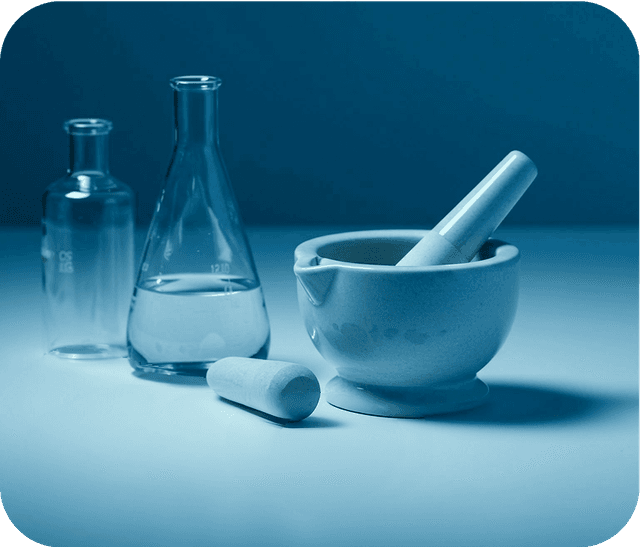How to Soothe a Sore Throat Without Antibiotics

A sore throat can make even the simplest things—like swallowing, talking, or eating—feel uncomfortable. While many people assume antibiotics are the solution, most sore throats are caused by viruses, not bacteria, which means antibiotics won’t help.
The good news is that there are plenty of safe, effective ways to relieve a sore throat at home using over-the-counter (OTC) products, natural remedies, and pharmacy-recommended care.
This article explains what causes a sore throat, when to seek medical help, and the best non-antibiotic ways to soothe it.
Understanding What Causes a Sore Throat
A sore throat, also called pharyngitis, is most commonly caused by:
-
Viral infections like the common cold or flu.
-
Seasonal allergies that irritate the throat.
-
Dry air, especially during winter or in air-conditioned rooms.
-
Postnasal drip from sinus congestion.
-
Overuse of the voice, such as shouting or singing.
Less commonly, sore throats can be caused by bacterial infections like strep throat, which may require antibiotics—but only after diagnosis by a healthcare provider.
When You Don’t Need Antibiotics
Antibiotics only work against bacterial infections. Most sore throats, especially those accompanied by coughing, sneezing, or a runny nose, are viral.
Taking antibiotics unnecessarily can:
-
Lead to antibiotic resistance (making future infections harder to treat).
-
Cause side effects like stomach upset or allergic reactions.
-
Offer no relief for viral symptoms.
If your sore throat lasts more than a week, is very painful, or comes with a fever or swollen glands, consult your healthcare provider to determine the cause before taking any prescription medications.
Pharmacy-Recommended Remedies to Relieve a Sore Throat
You don’t need antibiotics to feel better. Many OTC products and simple home remedies can help reduce pain, inflammation, and dryness.
1. Pain-Relieving Lozenges and Sprays
Pharmacies carry throat lozenges, gargles, and sprays that contain mild numbing agents or soothing ingredients. These products help:
-
Moisten a dry throat.
-
Reduce irritation and pain.
-
Provide short-term relief between doses of other remedies.
Look for options with ingredients like menthol, honey, or glycerin.
2. Warm Salt Water Gargle
One of the oldest and most effective home remedies is gargling with warm salt water. It helps reduce swelling and removes irritants from the throat.
How to do it:
-
Mix ½ teaspoon of salt into a glass of warm water.
-
Gargle for 30 seconds, then spit it out.
-
Repeat several times a day as needed.
This remedy is safe for most people, but children under six may find it difficult to gargle safely.
3. Stay Hydrated
Drinking plenty of fluids keeps your throat moist and prevents further irritation. Choose:
-
Warm liquids like herbal tea or broth for soothing comfort.
-
Cold water or popsicles to reduce inflammation.
-
Avoid caffeine and alcohol, which can dehydrate you.
Tip: Adding honey to warm tea can help coat and calm your throat naturally.
4. Use a Humidifier
Dry indoor air can make throat irritation worse. A cool mist humidifier adds moisture to the air, reducing dryness and helping you breathe more comfortably.
For best results:
-
Run a humidifier at night while you sleep.
-
Clean it regularly to prevent mold buildup.
5. Over-the-Counter Pain Relievers
If your sore throat is accompanied by pain or fever, OTC pain medications can help. Common options include non-prescription pain relievers that reduce discomfort and inflammation.
Ask your pharmacist which type and dosage are appropriate for your age, weight, and health condition.
6. Honey and Lemon
A natural combination of honey and lemon in warm water can provide instant relief.
-
Honey coats and soothes irritated tissues.
-
Lemon helps cut through mucus and provides vitamin C.
Avoid giving honey to children under 12 months old due to the risk of infant botulism.
7. Rest Your Voice
If your sore throat is caused by strain or overuse, resting your voice is essential. Whispering may seem gentler, but it can actually strain your vocal cords more.
Instead:
-
Speak softly and briefly when needed.
-
Drink warm fluids to soothe the vocal cords.
-
Avoid yelling or talking loudly until your throat feels better.
8. Try Throat-Soothing Teas
Herbal teas can help hydrate and calm your throat. Popular choices include:
-
Chamomile tea – naturally anti-inflammatory and calming.
-
Licorice root tea – helps coat the throat and reduce irritation.
-
Peppermint tea – provides a cooling, numbing effect.
If you take other medications, check with your pharmacist to ensure there are no potential interactions with herbal teas.
When to See a Healthcare Provider
Most sore throats improve in a few days with rest and self-care, but you should seek medical attention if you experience:
-
A fever above 101°F (38.3°C)
-
Difficulty swallowing or breathing
-
White patches or pus on the tonsils
-
Rash, nausea, or vomiting
-
A sore throat that lasts longer than a week
These symptoms may indicate strep throat or another bacterial infection that needs prescription treatment.
How Your Pharmacy Can Help
Your local pharmacy is a convenient and trusted resource for sore throat relief. Pharmacists can:
-
Recommend safe OTC medications and lozenges.
-
Suggest home remedies tailored to your symptoms.
-
Advise when to see a doctor.
-
Check for drug interactions if you’re taking other medications.
Pharmacists can also guide you toward products that reduce throat inflammation and pain while supporting your body’s natural healing process.
Preventing Sore Throats in the Future
You can lower your chances of developing a sore throat by following these simple habits:
-
Wash your hands often to prevent spreading germs.
-
Avoid close contact with people who are sick.
-
Stay hydrated to keep throat tissues moist.
-
Don’t smoke—tobacco smoke irritates the throat and weakens your immune system.
-
Use a humidifier during dry seasons.
Good hygiene and regular self-care can go a long way in keeping your throat healthy year-round.
Final Thoughts
Most sore throats are mild and viral, meaning they don’t require antibiotics. Instead, focus on soothing the discomfort with hydration, rest, OTC products, and simple home remedies.
Your local pharmacist is always available to recommend the best treatment options for relief and to help you decide if you should see a healthcare provider.
Taking small steps early—like gargling with salt water or sipping herbal tea—can make a big difference in how fast you recover and how comfortable you feel.



